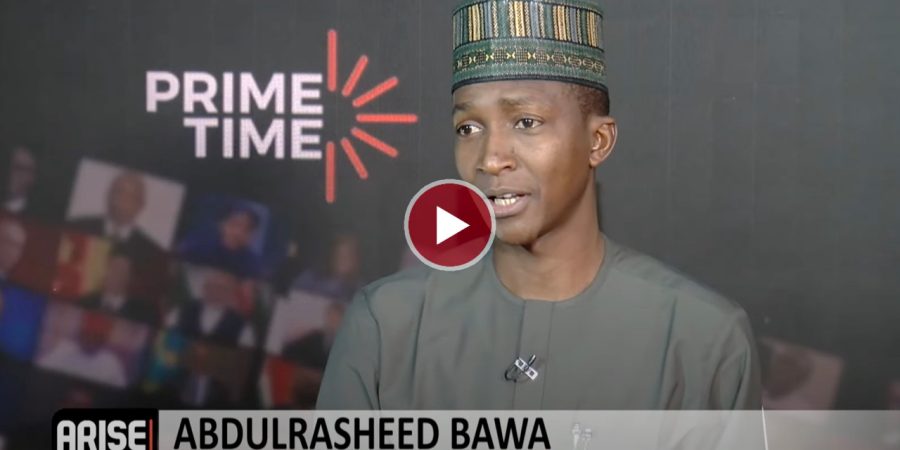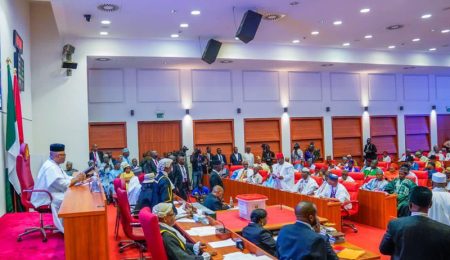AbdulRasheed Bawa, CON, the former Chairman of Nigeria’s Economic and Financial Crimes Commission (EFCC), has described the country’s decades-long fuel subsidy programme as a compromised system riddled with entrenched fraud, systemic failure, and complicity from both private actors and public officials, including law enforcement.
In an interview with ARISE News on Monday, centered around his book, “The Shadow of Loot and Losses Uncovering Nigeria’s Fuel Subsidy Fraud,” documenting the EFCC’s investigations into subsidy fraud between 2006 and 2011, Bawa said his findings confirmed long-standing suspicions that the system was structurally rigged to enable massive corruption.
Bawa, who chaired the EFCC from 2021 to 2023, noted that the corruption was deeply entrenched and widespread, adding that everyone, from marketers to regulators and even security agencies, found a way to profit from the multi-trillion-naira scheme.
“Everybody was benefiting from the scale and the scam, Including law enforcement,” Bawa said.
“People can be compromised in such a way that they will look the other way around. It’s a general thing.”
The investigation into the subsidy programme, which spanned five years of fuel importation and disbursements, revealed staggering figures: Nigeria’s subsidy payments ballooned from ₦200 billion in 2006 to ₦2.1 trillion by 2011.
Bawa, who documented the revelations in a new book, said the initial idea to write came from witnessing firsthand how unprecedented and unchecked the fraud was.
“Even at that time at the EFCC, we saw that this was something that had never happened before,” he said.
“I took the pain to write it down.”
He pointed out that although not all subsidy payments were fraudulent, the sharp rise in disbursements reflected manipulation of the system by actors who took advantage of regulatory loopholes and political protection.
“You have to understand, irrespective of how fortified a system is, with human touch, there’s nothing that cannot be done,” he said.
Bawa acknowledged that while the EFCC successfully prosecuted and convicted several subsidy fraud suspects — including one as recently as 2025 — the federal government eventually opted for negotiated recoveries over prolonged prosecutions.
“First, people were charged to court. Another set were charged. Then the government realised it didn’t have to take that path,” he explained.
“They opened a window for recovery.”
According to him, the number of oil marketing companies shrank significantly during the EFCC’s investigation — from 118 to 49 — while the total subsidy payout dropped from over ₦2 trillion to ₦1 trillion within the same period. These changes, he said, underscored the direct impact of the anti-graft probe.
When asked about President Bola Tinubu’s decision to eliminate the subsidy entirely in 2023, Bawa said it was a welcome development for Nigeria and its anti-corruption agencies.
“It’s a good thing that we had to let it go,” he said.
“At least that opportunity that the regime has provided is no more there.”
He added that while he could not independently verify how the savings are now being spent, he believes substantial funds must have been preserved and redirected into other areas of governance.
Bawa, who served during one of the most turbulent periods in Nigeria’s anti-graft history, declined to compare the current government’s anti-corruption record with his own, stating that governance is a continuous process.
“There is always room for improvement,” he said.
“The future is very bright for the country. We must be optimistic.”
However, when asked about the pattern of EFCC chairpersons leaving office under suspicion or probe, Bawa dismissed the notion of political targeting but acknowledged the recurring trend.
“It’s just a phase that has to come and go. People always talk. Whether you’re telling the truth or not, people will say something,” he remarked.
Despite his own departure from office in 2023 under a cloud of allegations, Bawa maintains that the work of the EFCC under his leadership — especially around the petroleum subsidy investigation — was impactful, detailed, and credible.
“The impact is real,” he said.
“The frauds that were identified helped to deal a very good blow to those that were participating in the scheme.”
Chioma Kalu
Follow us on:

